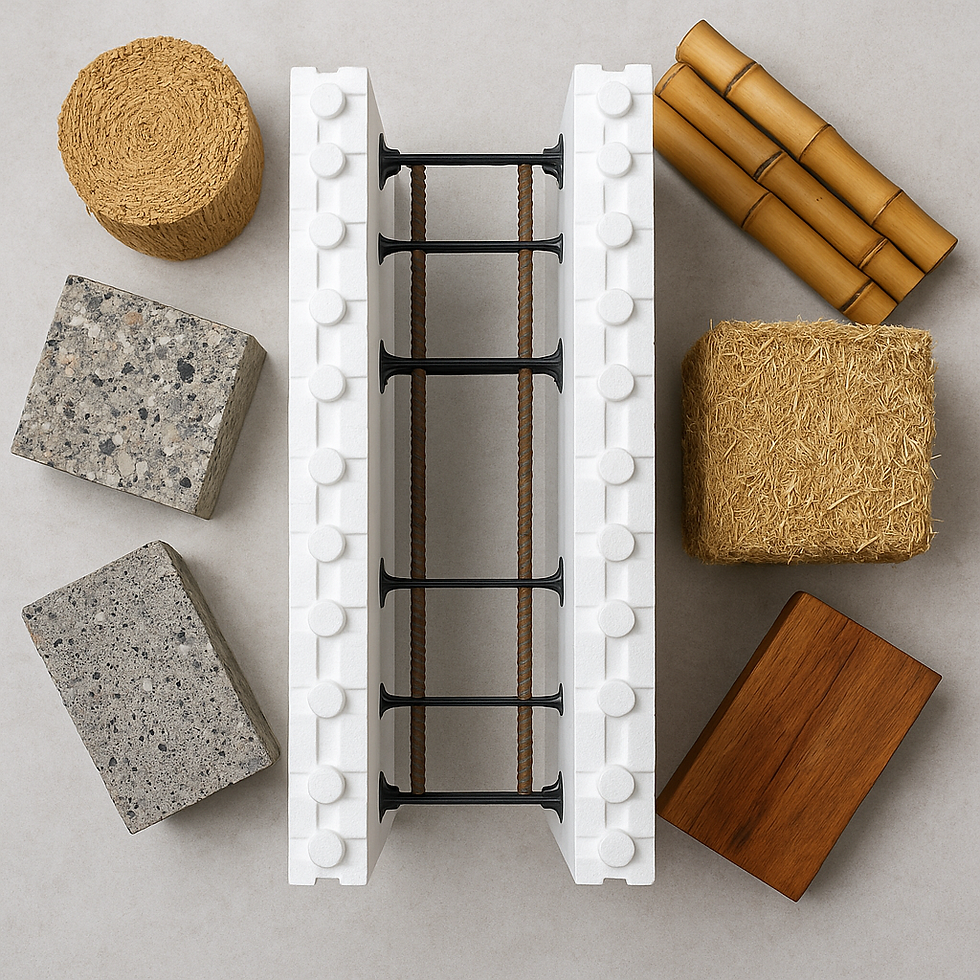Why Builders Are Rethinking Their Materials: Cost, Durability, and the Sustainability Edge
- Stephen Mater
.jpg/v1/fill/w_320,h_320/file.jpg)
- Jul 22, 2025
- 2 min read
In a world where construction timelines are tight, budgets are strained, and climate risks are rising, builders across the Caribbean are rethinking the materials they use. The old way of building just doesn't cut it anymore.
At StelCor Solutions, we've seen a significant shift: developers, contractors, and governments are moving toward materials that are not only strong but also smart materials that offer long-term durability, cost efficiency, and a sustainability edge.
Let's break down why the switch is happening, and why it's not a trend, but the future of infrastructure.
1. Durability Is No Longer Optional
Concrete cracks. Wood rots. Steel rusts. In a tropical climate where humidity, salt air, and extreme weather are the norm, materials degrade quickly.
That's where Insulated Concrete Forms (ICF) come in.
These high-performance blocks resist mold, moisture, fire, and impact, delivering structural integrity that lasts over decades. Builders aren't just using ICF for homes anymore; they're using it for schools, clinics, and commercial projects that require lasting durability.
2. Cost Isn't Just Upfront—It's Lifecycle
Traditional building materials may seem cheaper up front, but what about maintenance, energy bills, and repairs?
ICF and other advanced materials reduce the need for reinforcement, insulation, and frequent touch-ups. When it comes to energy savings, the thermal efficiency of ICF walls results in 30–50% lower energy costs over time. That's money saved for owners and operators every single month.
Smart builders aren't chasing the cheapest materials. They're choosing the ones that last.
3. Sustainability is a Competitive Advantage
Today's developers face pressure to build sustainably, and not just for the environment.
Governments are requiring greener building codes.
Homebuyers are increasingly inquiring about energy efficiency and the carbon footprint.
Investors are prioritizing ESG criteria.
Materials like ICF and modern wastewater systems give builders a clear edge. StelCor's wastewater technologies, for example, help reduce groundwater contamination, eliminate harmful runoff, and allow developments to operate responsibly, without relying on outdated septic systems.
4. Speed Matters, and So Does Simplicity
Modern materials also help accelerate construction timelines.ICF blocks are quick to assemble, easy to transport, and require fewer trades on-site.
That means fewer delays. Fewer headaches. And faster delivery to market.
For growing economies like Belize, The Bahamas, and Jamaica, where housing demand is high and infrastructure is stretched thin, this speed matters.
5. It's Not Just What You Build, It's What You Leave Behind
StelCor believes in building infrastructure that stands the test of time and serves the communities that rely on it.
Whether it's a hurricane-ready home, a wastewater treatment system for a rural village, or a durable commercial facility, what you build should last, conserve energy, and minimize your environmental impact.
Builders are rethinking their materials. We're here to supply the solutions they need to build better.



Comments